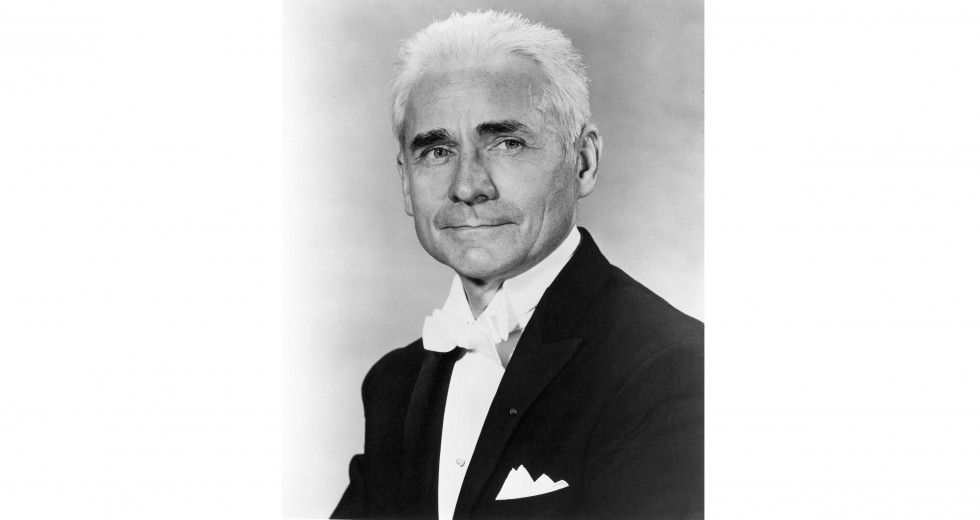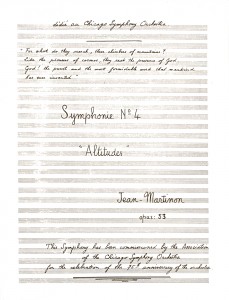
During the 1965–66 season, Jean Martinon wrote, “It is really a great honor to be leading the musical life of an orchestra at the time it reaches seventy-five years of age. Still, a much greater honor and incomparable chance when the orchestra happens to be one of the greatest in the world.” To celebrate the anniversary, Martinon was commissioned to compose his Fourth Symphony—descriptively titled Altitudes—inspired by his passion for mountain climbing (his frequent climbing partner was well-known mountain guide and alpinist Gaston Rébuffat).

From the title page of Martinon’s Symphony no. 4: “For what do they search, these climbers of mountains? Like the pioneers of cosmos, they seek the presence of God. God! the purest and the most formidable word that mankind has ever invented . . . This Symphony has been commissioned by the Association of the Chicago Symphony Orchestra for the celebration of the 75th anniversary of the orchestra”
While composing the symphony, Martinon recalled that his “thoughts were always of my orchestra—this magnificent instrument, a real Stradivarius for the conductor. Each detail of my score brought to mind each one of the marvelous musicians. I imagined this melody played by a certain group, that rhythm by another section, and this chord by another. . . . In brief, it is with love that I dedicate to them this symphony. I hope it may prove worthy of them.”
The special celebratory concerts of December 30 and 31, 1965, opened with Bernstein’s Overture to Candide followed by the world premiere of Martinon’s symphony, second music director Frederick Stock’s Symphonic Variations on an Original Theme, and the finale from Wagner’s Götterdämmerung with soprano Eileen Farrell.
Regarding the premiere, Robert C. Marsh in the Chicago Sun-Times wrote, “The symphony is imaginative, expertly scored, and wonderfully evocative. It really conveys the way it feels to go out and climb a mountain, the exhilaration at the start, the changing moods and scenes as one ascends, and finally the radiant joy as the earth drops away and leaves the climber in his private realm of rock, snow, and sky.”
Nearly two years later, Martinon and the Orchestra recorded the Altitudes Symphony for RCA in Medinah Temple on November 29, 1967. In 2015, RCA rereleased the symphony as part of a boxed set that included Martinon’s complete catalog of recordings with the Chicago Symphony Orchestra.
This article also appears here.